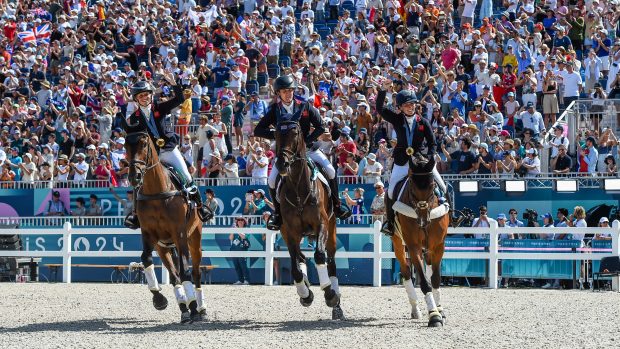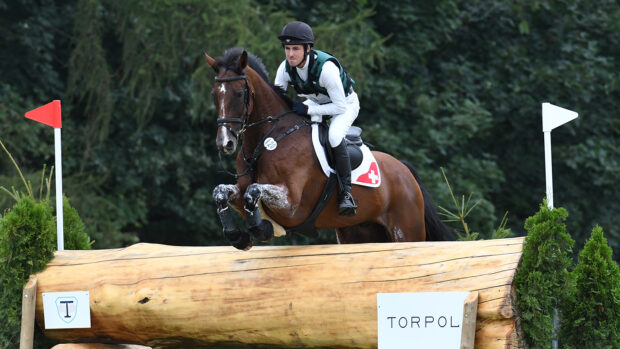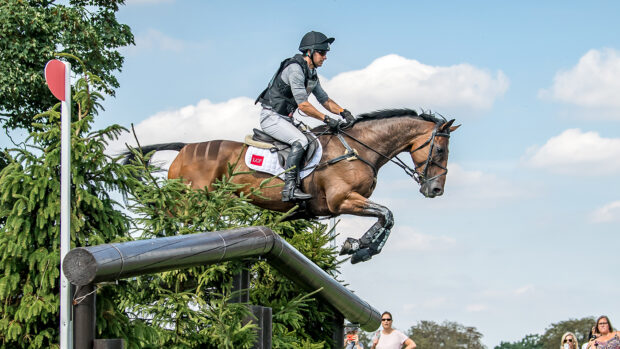Originally destined for the show ring, Sir Wattie was quite a handful in his early days. The first time Ian rode the four-year-old bay, who had been difficult to break in, he was launched into the indoor school’s rafters.
“I rememberthinking,” says Ian, “that he was either useless or brilliant. There was something special about him even then.”
Looking back, it is easy to see why the horse bucked and lacked concentration. By Bronze Hill, this 16.2 bay gelding was the genius boy in the classroom and was disruptive because he was bored.
“He was irritating beyond belief,” remembers Ian, “and everybody around me suffered because I was going through hell. I seethed quietly over Wattie until someone upset him and I then let that person know precisely how displeased I was with them.”
In 1982, two years after he took over the ride on Wattie, Ian left his job at the DHSS and became a professional horseman, but Wattie was unaware of the important change in status.
“He thought life was a breeze, doing one-day events, then novices and intermediates, but his temperament,” Ian stresses, “was so difficult.”
Then, when Wattie was seven and had finally grasped medium and extendedtrot, Ian Stark asked the biggest question yet of him. He took him to Bramham, where Sir Wattie won convincingly. The experience transformed him and, as his rider says, “he realised why he had been put on this earth”.
The rise of the twounknowns was meteoric. Badminton, where they came sixth, was next, and Ian recalls: “At eight years old, Wattie was like a schoolmaster, telling me: ‘It’s okay if you get it wrong, because I will fix it for you’.”
Two years later, in 1986, they returned to this premier venue and won in a mudbath. The tears trickled down Ian’s cheeks, “because,” he explains, “I thought Wattie was wonderful and had given everything”.
Wattie had still more to offer and gleaned individual bronzeand individual silver medals in two European Championships, earning the reputation for being one of the best three-day event horses in the world.
He could still be awkward, though, scuttling to the back of his box to sulk if he was not ridden first, and once bucked off a groom in order to gallop among stampeding cattle.
Ian, watching helplessly from a distance, was having fits: “That’s supposed to be my Olympic horse!”
That was in their golden year, 1988, when they won Badminton for a second time and crowned it with individual and team silver medals at the Seoul Olympic Games.
Ian was under pressure to let Sir Wattie power on in his career, because he was still only 12 years old.
“But he had given 150% and I did not think there was any need to ask for more. He was one of the family,” says Ian, “and in the same way I would not want one of my children to be hurt, I could not bear that Wattie might be injured late in life. Jenny and I talked it over with the owners and they agreed that he should retire.”
“He’s an incredible character,” says Ian, “an out-and-out winner. The last time I saw him, he finished a packet of peppermints and clearly knew who I was. I could not tell, though, whether he was saying ‘it’s nice to see you,’ or asking, ‘are we going eventing again?’.”


